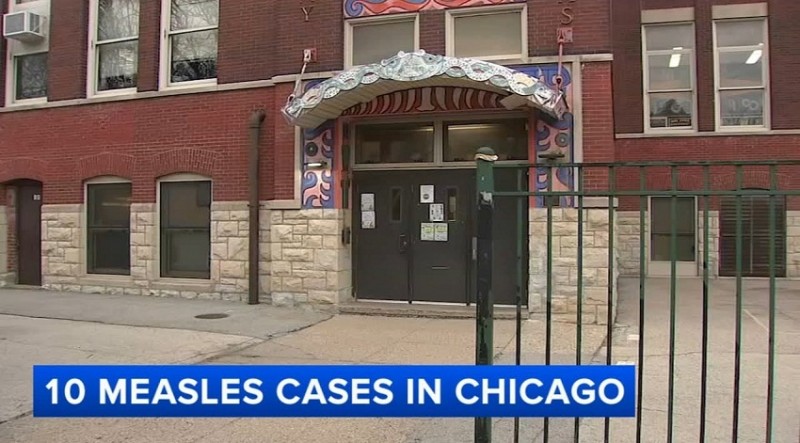
Chicago is facing a measles outbreak, with 12 confirmed cases reported, including 10 linked to the city’s largest migrant center. This situation has raised concerns about healthcare management for migrants and the potential stigma against new arrivals.
The National Health Service is launching a campaign after 216 confirmed measles cases and 103 probable cases in parts of England since October. This outbreak highlights the challenges public health systems face in dealing with highly contagious diseases, especially in vulnerable populations.
Chicago Health Commissioner Simbo Ige clarified that the initial measles case in the city this year wasn't linked to the shelter. He stated, “The first case of measles in Chicago was a non-shelter resident. And those who got infected got infected because measles was circulating in Chicago.”
The spread of the disease is worrying given the national context of a measles outbreak. Health officials found measles cases at a Pilsen shelter, where about half of the 900 residents hadn't been vaccinated. Recently vaccinated individuals are now under quarantine to prevent further spread.
Measles is highly contagious, with virus particles lingering in the air for up to two hours after an infected person coughs or sneezes. Children can also contract measles by touching contaminated surfaces and then their faces.
Parents should be aware of measles symptoms, which typically appear one to two weeks after exposure. Early symptoms include cough, red and watery eyes, runny nose, and high fever. Later, children may develop tiny white spots in their mouths followed by a rash starting at the hairline and spreading.
Complications from measles can be severe, including ear infections, diarrhea, pneumonia, and encephalitis (swelling of the brain). According to the CDC, out of every 1,000 children with measles, one to three may die from the disease.
The measles vaccine protocol involves two doses: the first recommended for children aged 12-15 months, and a booster between four to six years old. Most people who receive both shots are protected. Adults usually don't need booster shots unless there's a community outbreak.
For parents unsure about their child’s vaccination status, consulting a healthcare provider to retrieve vaccination records is advised.
Unable to Sleep? 5-Minute Sleep Solutions: Quick,Effective Techniques for Instant Zzz’s